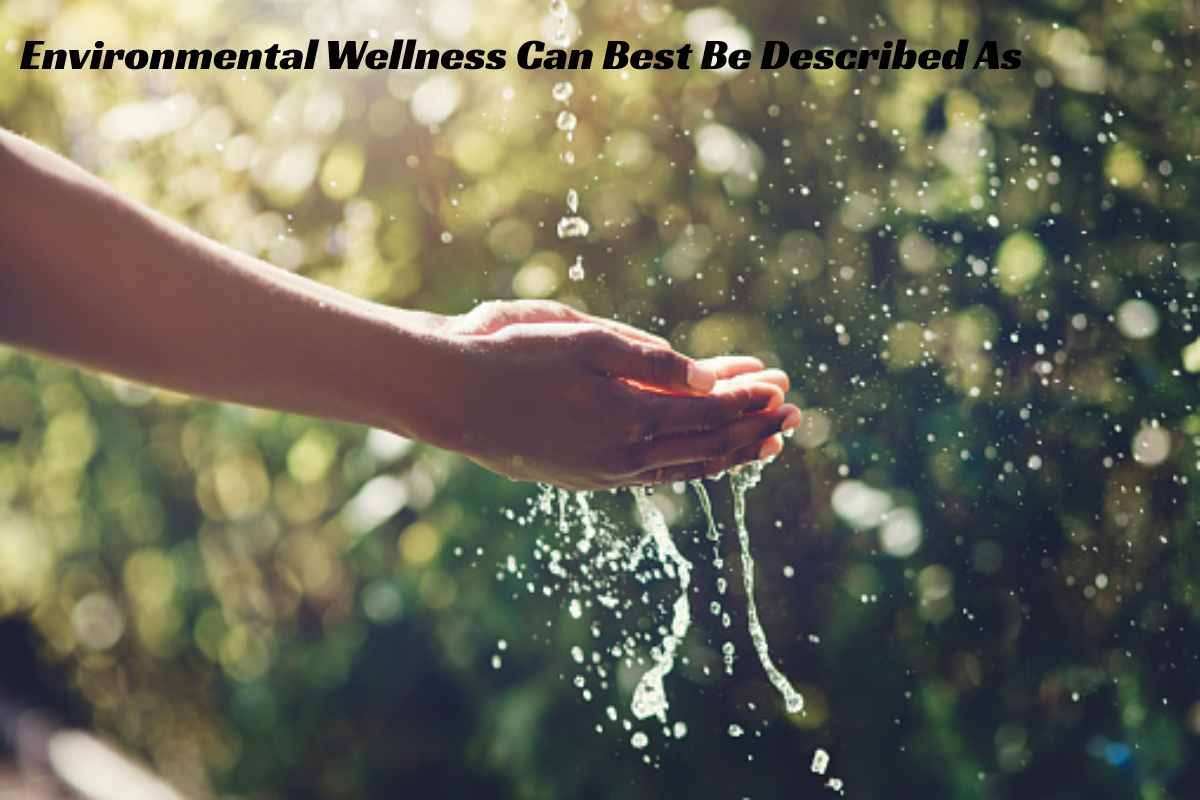Table of Contents
Definition of Environmental Well Being
Environmental Wellness Can Best Be Described As, Environmental well-being is good health occupying pleasant, stimulating environments that promote well-being. It promotes interaction with nature and creates a friendly personal environment (both inside and outside your workspace). Everyone can have solid environmental awareness simply by increasing their awareness and incorporating features that help make their surroundings more pleasant.
Why Is Environmental Wellness Important?
The central principle of environmental well-being is respect for all of nature and the species that live in it. When you become environmentally aware, you will remain able to realize how your daily habits affect your home life and work life. Improving environmental wellness remains simple and results in a more balanced lifestyle.
The Environmental Wellbeing Route
Once you start down the path to environmental wellness, it becomes straightforward to do. You can adopt many environmentally conscious practices to improve your relationship with the environment. Conservation is at the root of everything. Below remains a list of suggestions to help you become more environmentally conscious.
- Set up your work space to remain more efficient and comfortable.
- Conserve energy.
- Recycle (you can also bring your coffee cup or water bottle to work)
- Become aware of the Earth’s natural resources. Identify and understand the role of our natural resources.
- Spend time outdoors [perhaps in Newport News city parks] and boost your vitamin D simultaneously
- Environmental Wellness Resources
- There remain several ways you can improve your environmental well-being.
What Does Wellness Mean?
Although we just defined wellness, what people mean when they say wellness is slightly different. Within the wellness field, we tend to think of wellness as somewhere between physical health and mental wellness. Usually, when people refer to health, they mean physical health, and when people say “wellness,” they mean mental health. Wellness is a broader term that generally includes physical health, mental well-being, and other dimensions, such as spirituality.
Do you want to learn a little more about your well-being? Take our wellness quiz to get your personalized report and tips to improve the wellness areas you struggle with.
Emotional Well-Being, Environmental Wellness Can Best Be Described As
Emotional wellness (or emotional wellness) is what we cover the most on this website. It includes a range of emotional skills such as positive thinking, resilience, and using our strengths. Environmental Wellness Can Best Be Described As By developing these skills, we can better manage emotions, cope with stress, and live fulfilling and meaningful lives.
Environmental Welfare
Environmental wellness means we live in balance, connection, and synergy with our environment. This means that our place is calm, safe, and non-toxic and promotes health and well-being. It is important to remember that our environment contributes to our well-being, but we also have some control over our domain. To improve our environmental well-being, we can choose to get an air filter or a water filter to lessen the impact that pollution has on us. We might decide to get away from the city to be in nature more often. Or we could make an effort to move to a neighborhood with less crime.
Physical Well-Being
Physical wellness generally includes diet, exercise, and sleep. Nutrition is perhaps one of the most talked about areas of fitness. Knowing which foods to eat for greater well-being and contribute to poor health is essential. Exercise is another big topic. Exercise is not only good for physical well-being, but it also helps improve emotional well-being. So try to get at least a little bit of exercise every day.
Intellectual Well-Being
Intellectual wellness is about learning and growing. When we try to be curious, creative, and interested, we experience more things that can boost well-being. For example, we could visit a gallery and remain inspired by fine art. We can have conversations with people who are different from us and learn new things that can help us rethink our challenges and our view of the world. Or we can do something creative like photography, music, or cooking to make us feel more alive and well.
Occupational Wellness
Occupational wellness can remain found by contributing something significant to the world. (We can also get this kind of welfare from school or volunteering.) We feel more meaning when we feel that our work has a purpose and we are appreciated for a job well done. Even if we can’t forget about caution and quit our jobs, we can grow our occupational well-being in small ways, for example, by helping a co-worker, joining a project that interests us, or developing new skills to move forward. A more satisfying career.
Conclusion
Environmental wellness is having good health by occupying pleasant, stimulating environments that support well-being. It promotes interaction with nature and also creating an enjoyable personal environment (both in and out of your workspace).

